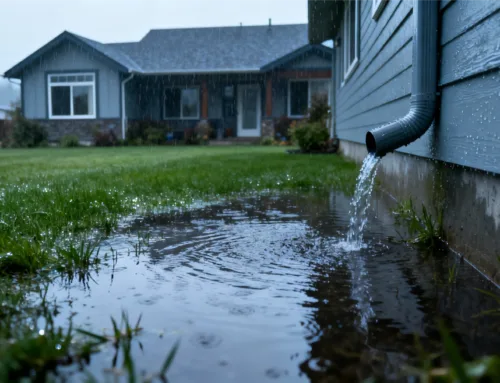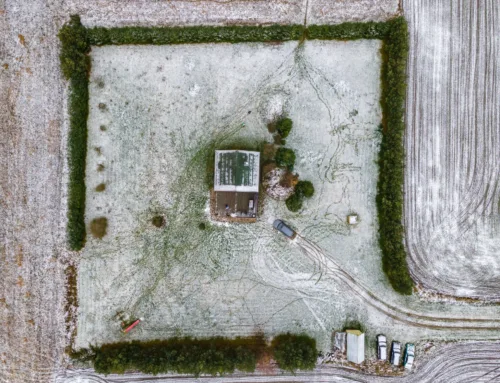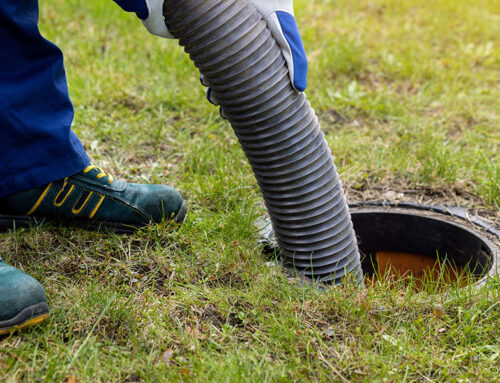Top 5 Signs Your Septic System Needs Professional Attention

Your septic system works quietly behind the scenes, treating household wastewater and protecting your property and the environment. However, like any mechanical system, it can develop problems that require immediate professional attention. Recognizing the warning signs early can save you thousands of dollars in repairs and prevent serious health hazards.
Many residences in the FVRD’s eight electoral areas are on private septic systems. These are regulated by the Fraser Health Authority. Understanding when your system needs help is crucial for Fraser Valley homeowners, where septic systems face unique challenges from our region’s soil conditions, heavy rainfall, and freezing temperatures.
1. Slow Drains and Frequent Backups
When your sinks, toilets, showers, or washing machine drain slowly or back up frequently, your septic system is sending you a clear distress signal. This problem often starts in one fixture but gradually spreads throughout your home as the situation worsens.
The backup usually occurs because your septic tank is full of solids or your drainfield has become clogged. The sludge and scum layer remaining in the septic tank need to be pumped out regularly (usually every 2 to 5 years). When these layers become too thick, they can block the flow of wastewater through your system.
In Fraser Valley’s clay-heavy soils, drainfields can become saturated more easily during our rainy seasons. The combination of heavy precipitation and poor soil drainage creates conditions where your system cannot properly process wastewater. This is particularly common in areas like Hatzic Valley, where soil conditions present ongoing challenges for septic systems.
Professional septic technicians can determine whether your tank needs pumping, your drainfield requires maintenance, or if more serious repairs are necessary. They use specialized equipment to assess your entire system and identify the root cause of drainage problems.
2. Unpleasant Odors Around Your Home
Strong sewage smells near your septic tank, drainfield, or inside your home indicate that your system is not working properly. These odors suggest that untreated wastewater is surfacing or that gases are escaping from your system.
Several factors can cause these smells. Your septic tank may be overfull, preventing proper treatment of waste. Damaged pipes or a failing drainfield can allow sewage to surface before it has been properly filtered through the soil. In some cases, a broken or missing vent can cause gases to accumulate rather than escape safely.
Fraser Valley’s wet climate can worsen odor problems. Heavy rains can saturate the soil around your septic system, preventing proper absorption and causing sewage to surface. During winter months, frozen ground can create similar problems by preventing normal water infiltration.
These odors are not just unpleasant – they indicate potential health hazards. For health and safety concerns or complaints about an onsite sewerage issue, call the Population Health Call Centre at 604-587-3936 and request to be connected to an environmental health officer in the Water and Land Program.
3. Lush Green Grass or Standing Water Over the Drainfield
While a healthy lawn is usually desirable, unusually lush, green grass growing over your drainfield during dry periods is a warning sign. This occurs when your septic system is releasing partially treated wastewater near the surface, essentially fertilizing the grass above.
Standing water or soggy ground over your drainfield is an even more serious concern. This indicates that your system cannot properly absorb and filter wastewater through the soil. The problem becomes worse during Fraser Valley’s rainy season when already saturated soils cannot handle additional liquid from a failing system.
Several factors can cause drainfield problems. Over time, the soil can become clogged with solids that have escaped from your septic tank. Tree roots can grow into and damage drainfield pipes. Heavy machinery or vehicles driving over the area can compact the soil and crush pipes.
Professional assessment is essential because drainfield problems often require extensive repairs or replacement. Early intervention can sometimes prevent complete system failure, but waiting too long usually means expensive reconstruction.
4. High Nitrate Levels in Your Well Water
If your property uses well water, regular testing can reveal septic system problems before they become obvious. Elevated nitrate levels in your drinking water often indicate that your septic system is contaminating your groundwater supply.
This contamination occurs when your septic system fails to properly treat wastewater before it reaches the water table. Damaged drainfield pipes, an overfull septic tank, or inadequate soil filtration can all allow contaminants to reach your well.
Fraser Valley’s geography creates particular risks for well contamination. Properties with shallow wells or wells located downhill from septic systems face higher contamination risks. The region’s varied soil types mean that some areas provide better natural filtration than others.
Regular water testing is especially important for Fraser Valley residents because our rural properties often rely on private wells. According to the Sewerage System Regulation only an Authorized Person can design, install, repair, maintain and/or inspect a sewerage system. An Authorized Person is a Professional Engineer or a Registered Onsite Wastewater Practitioner (ROWP).
Contaminated well water poses serious health risks, particularly for children, elderly family members, and anyone with compromised immune systems. Professional septic system inspection and repair can eliminate the source of contamination and protect your family’s health.
5. Septic Alarm Activation or Unusual Noises
Modern septic systems often include alarm systems that activate when something goes wrong. These alarms typically indicate problems with pumps, high water levels, or electrical components. Never ignore these warnings – they are designed to alert you before complete system failure occurs.
Unusual noises from your septic system also signal problems. Gurgling sounds in your drains suggest blockages or ventilation problems. Grinding or mechanical noises from pump chambers indicate equipment failure. These sounds often occur before other symptoms become apparent.
Fraser Valley’s power outages during winter storms can affect septic system pumps and alarms. After any power interruption, check that your system is operating normally. Some systems require manual reset after power restoration.
Electrical components in septic systems are complex and potentially dangerous. The BC Sewerage System Regulation requires an Authorized Person to design, install, repair or maintain a septic system. Professional technicians have the training and equipment to safely diagnose and repair electrical problems in septic systems.
Conclusion
Your septic system provides essential services that protect your family’s health and our environment. Recognizing warning signs and seeking professional help quickly prevents minor problems from becoming major disasters.
Fraser Valley’s unique climate and soil conditions require specialized knowledge for proper septic system care. Qualified professionals understand these challenges and can provide the maintenance and repairs needed to keep your system functioning reliably.
Don’t wait for complete system failure to seek professional help. Regular maintenance and prompt attention to warning signs ensure your septic system continues protecting your home and our community for years to come.




